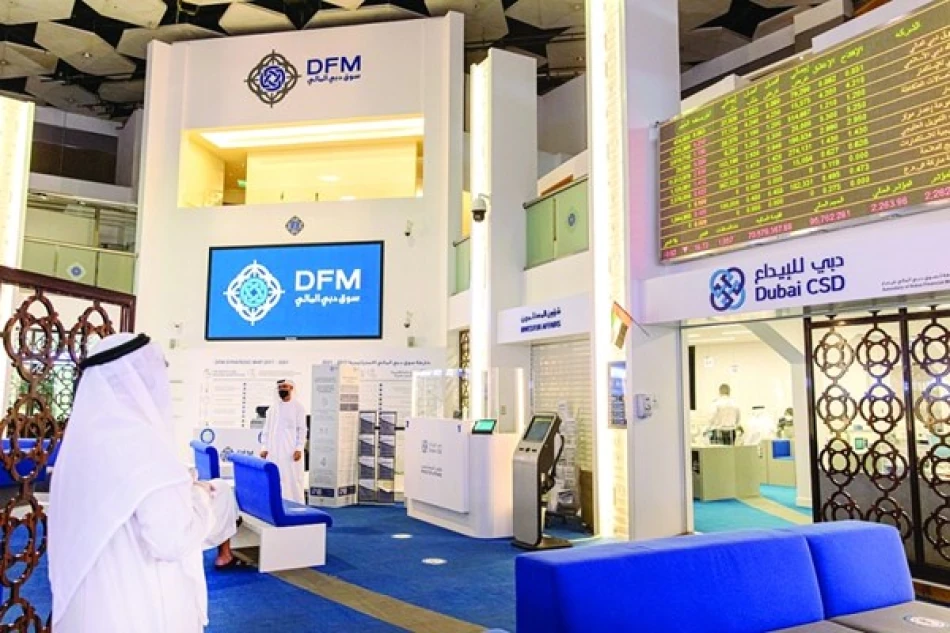
UAE Stock Market Gains Reach $1.8 Billion in One Week, Boosting Investor Confidence
UAE Stock Markets Surge as Foreign Capital Drives 6.7 Billion Dirham Weekly Gain
The UAE's stock exchanges experienced a remarkable resurgence last week, with market capitalization climbing by 6.73 billion dirhams as foreign investors poured capital into Dubai and Abu Dhabi markets. This surge, driven predominantly by non-Arab foreign investors who controlled over half of all trading activity, signals renewed international confidence in the Emirates' financial markets amid global economic uncertainty.
Foreign Investment Patterns Reveal Strategic Market Positioning
Foreign investors demonstrated their growing appetite for UAE equities, accounting for 51.8% of trading value in Abu Dhabi and 53.2% in Dubai. However, their strategies diverged significantly between the two markets. In Abu Dhabi, foreign investors were net buyers to the tune of 279.72 million dirhams, while in Dubai they were modest net sellers at 19.9 million dirhams.
This divergence likely reflects different investment philosophies toward the two exchanges. Abu Dhabi's market, dominated by energy giants and government-linked entities, appears to attract investors seeking stable, dividend-yielding assets. Dubai's more diverse, trade-focused market may be experiencing profit-taking after recent gains.
Non-Arab Foreign Investors Lead the Charge
Non-Arab foreign investors were particularly active in Abu Dhabi, generating net purchases of 297 million dirhams while capturing 39.1% of total trading value. Their buying activity totaled 2.431 billion dirhams against sales of 2.134 billion dirhams, suggesting sustained confidence in the market's long-term prospects.
Market Performance Reflects Regional Economic Strength
Dubai's market emerged as the week's clear winner, with its market capitalization surging by 5.82 billion dirhams to reach 1.033 trillion dirhams. The Dubai Financial Market index gained 41.34 points, closing at 6,030.55 points with a 0.69% weekly increase.
Abu Dhabi's performance was more modest, with market cap rising by just 902.58 million dirhams to 3.97 trillion dirhams, despite the index declining slightly by 19 points to 10,014.15. This contrast highlights Dubai's appeal to growth-oriented investors versus Abu Dhabi's positioning as a value play.
Institutional vs. Retail Dynamics Shape Trading Patterns
Institutional investors dominated trading activity, particularly in Dubai where they accounted for 72.9% of purchases and 74.29% of sales. However, institutions were net sellers in both markets, with individual investors providing the buying support. This pattern often indicates institutional profit-taking while retail investors chase momentum.
In Abu Dhabi, institutions sold a net 246.49 million dirhams worth of shares, exactly offset by individual investor purchases. Dubai showed a similar dynamic, with institutions selling 40.39 million dirhams net while individuals provided equivalent buying power.
Regional Context and Global Implications
The UAE's market performance comes as Gulf economies benefit from elevated oil prices and economic diversification efforts. Unlike Saudi Arabia's market, which has faced pressure from global concerns about oil demand, the UAE's more diversified economy and strategic positioning as a regional hub continue attracting international capital.
The strong foreign participation mirrors trends seen in other regional financial centers like Qatar and Kuwait, where international investors are increasing their GCC exposure as an alternative to more volatile emerging markets in Asia and Latin America.
Investment Outlook and Market Dynamics
The 8.73 billion dirhams in total weekly trading volume, spread across 2.48 billion shares in 176,075 transactions, demonstrates robust market liquidity. This liquidity, combined with sustained foreign interest, positions the UAE markets favorably for continued growth.
The divergent performance between Dubai and Abu Dhabi exchanges also creates opportunities for tactical allocation strategies. Dubai's momentum-driven gains appeal to growth investors, while Abu Dhabi's stable, dividend-rich environment attracts value-oriented funds seeking exposure to the region's energy transition and infrastructure development.
For global portfolio managers, the UAE's market surge represents both the promise and complexity of GCC investing—strong fundamentals and government support, but requiring nuanced understanding of individual market dynamics and investor behavior patterns.
Most Viewed News

 Layla Al Mansoori
Layla Al Mansoori






